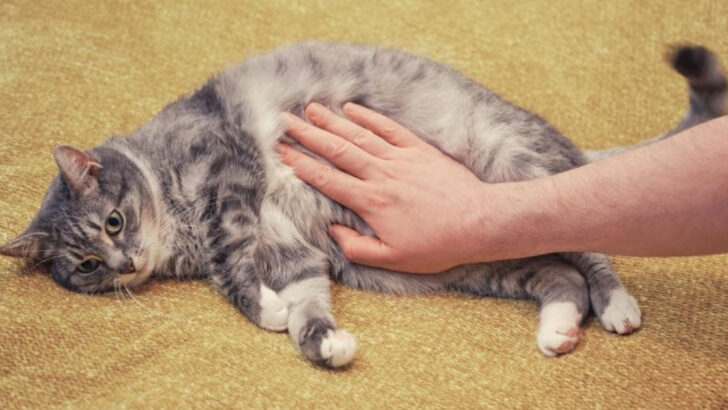Your cat can’t exactly say, “My stomach hurts”—but their body will. One odd sneeze? Maybe nothing. But strange grooming, restless pacing, or hiding in a closet? Those could be red flags waving from deep inside their belly. While cats are mysterious by nature, their digestive systems are even more cryptic. Some signs scream “gut trouble,” while others sneak by unnoticed until it’s too late. This guide sorts the harmless from the stomach-related, so you can stop guessing and start spotting the real signals. Because when it comes to feline health, silence isn’t golden—it’s dangerous. Let’s decode your cat’s signals and figure out what’s really going on behind those whiskers.
Sneezing and Runny Nose
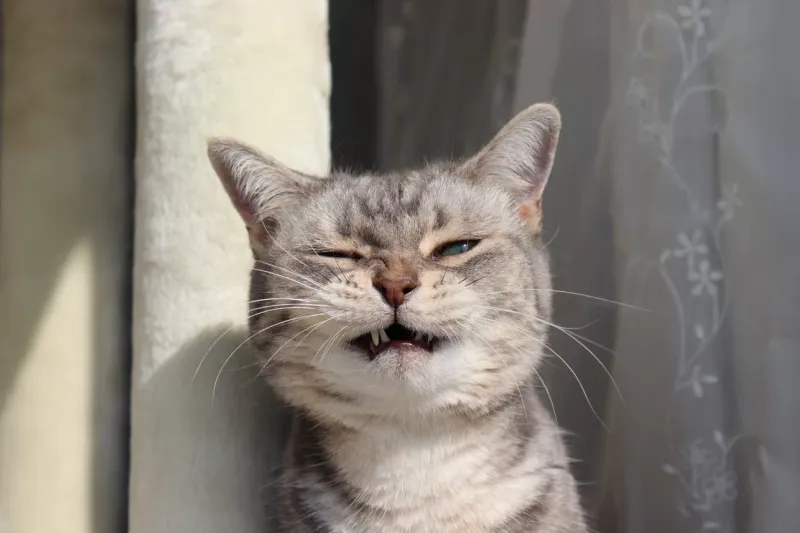
When your cat begins to sneeze and shows a runny nose, it might not be an indication of stomach trouble. Often, these symptoms are related to upper respiratory infections or allergies. Imagine your feline friend snuggled on the windowsill, suddenly caught in a sneezing fit. It’s an endearing sight, albeit slightly concerning. With proper care and attention, this condition is usually manageable. A clean environment and regular check-ups can keep your kitty’s sniffles in check. Breathing easy again, your cat will soon be back to its playful self, chasing sunbeams and purring contentedly.
Itchy Skin or Excessive Grooming
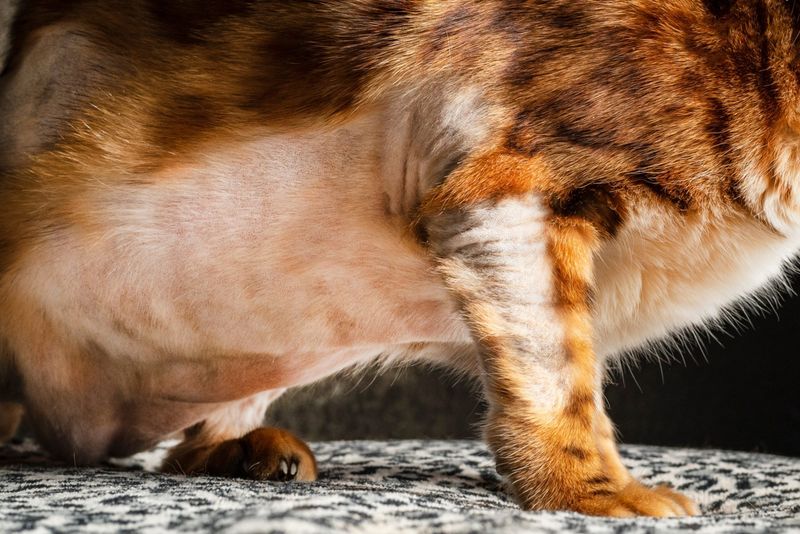
With a fur coat that occasionally demands attention, cats sometimes exhibit symptoms like itchy skin or excessive grooming. These are not stomach-related but can be equally distressing for the pet. Picture a fluffy feline, incessantly grooming itself on a plush carpet, its face betraying slight irritation. Such behavior could point to allergies, parasites, or even stress. Regular brushing and flea control measures often mitigate these issues. Consulting a vet can provide additional insights, ensuring your cat’s coat remains the envy of the neighborhood.
Limping or Difficulty Walking
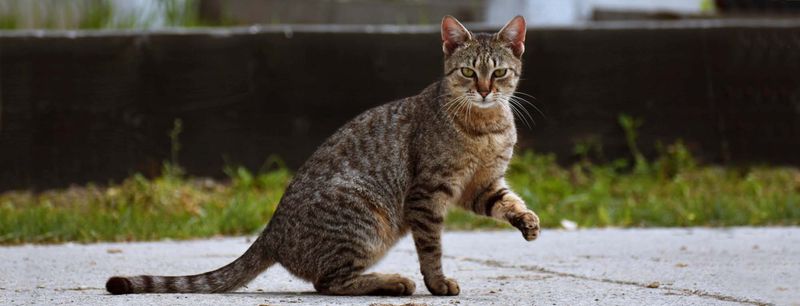
Cats are natural athletes, so limping or difficulty in walking certainly stands out. These symptoms are generally not related to the stomach but could signal an injury or arthritis. Imagine a graceful feline navigating a garden path, suddenly limping on one paw. This scene might evoke concern, urging a gentle examination of the affected limb. Often, a careful balance of rest, nutrition, and vet consultations will ease the discomfort. With time, your cat will likely spring back to its agile nature, exploring every nook and cranny with renewed curiosity.
Coughing or Wheezing
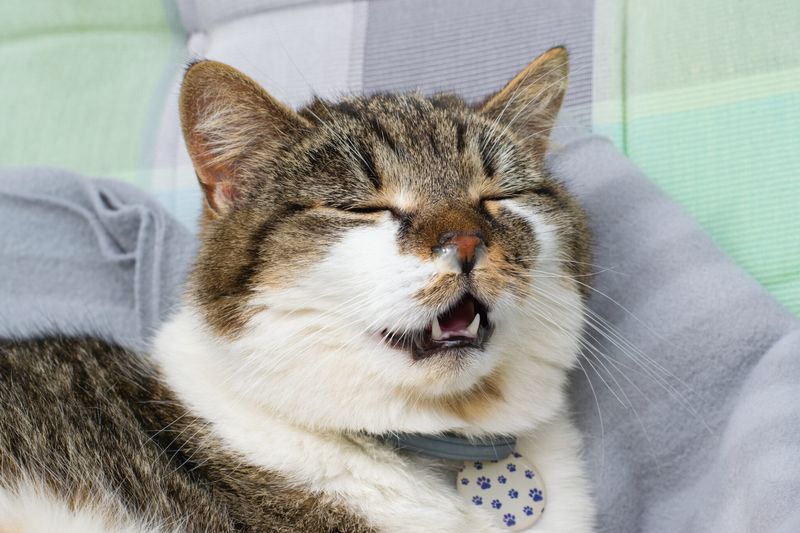
Coughing or wheezing in cats can be alarming, yet it’s often unrelated to stomach woes. Picture a cat perched on a balcony rail, mouth open in a soft cough, under the clear sky. Such signs might indicate asthma, heartworm, or other respiratory conditions. Though they require attention, many of these issues are treatable with medication and environmental adjustments. A visit to the vet and a careful observation of triggers can help manage these symptoms, allowing your feline to breathe freely and bask in sunny afternoons once more.
Ear Discharge or Odor
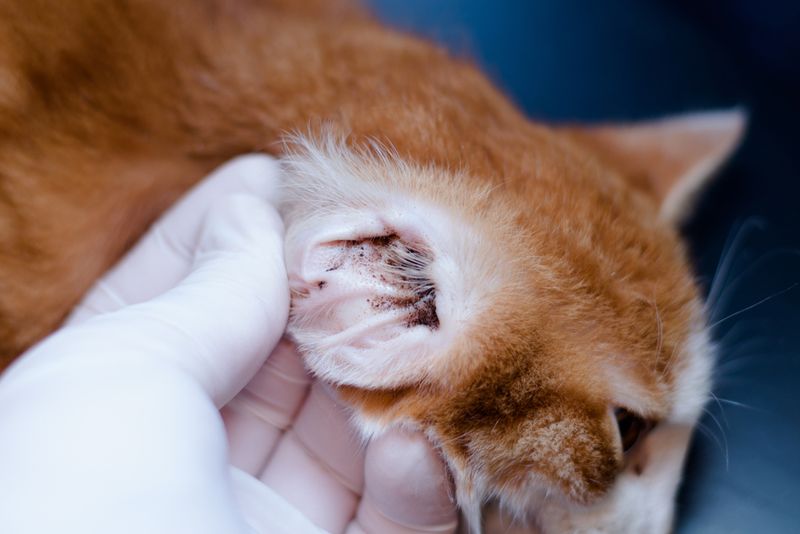
Ear discharge or an unusual odor from your cat’s ears can point to problems unrelated to stomach health. Imagine catching your feline in a cozy room, scratching its ear with visible discomfort. This could indicate infections, mites, or other ear conditions. Timely cleaning and veterinary evaluations are essential to prevent chronic issues. With the right treatment and care, your cat’s ears will thank you, and you’ll enjoy the gentle headbutts and purrs once more. Keeping those ears perky and clean is part of a happy cat life.
Vomiting
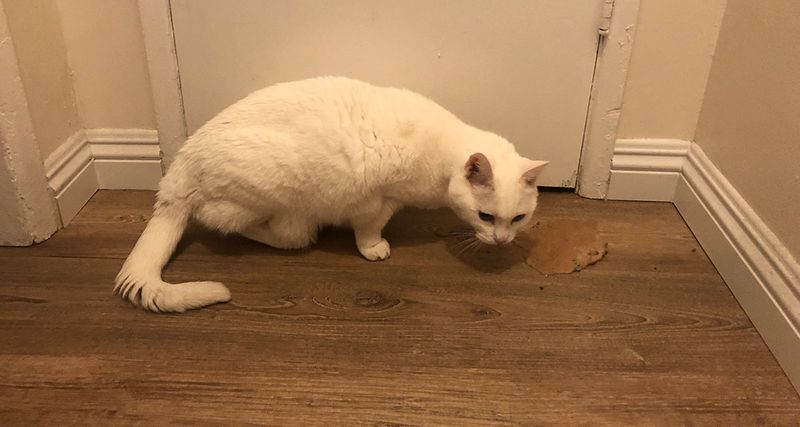
Vomiting in cats is a classic indicator of stomach-related issues. Picture a cat on a kitchen floor, its body heaving slightly before producing a small pile. This distressing scene can stem from hairballs, dietary indiscretions, or gastrointestinal disorders. Managing the condition often involves dietary adjustments or medications prescribed by a vet. With appropriate care, these episodes can be minimized, restoring your cat’s comfort and your peace of mind. Watching your feline friend return to its usual antics after a bout of illness is a rewarding experience.
Diarrhea
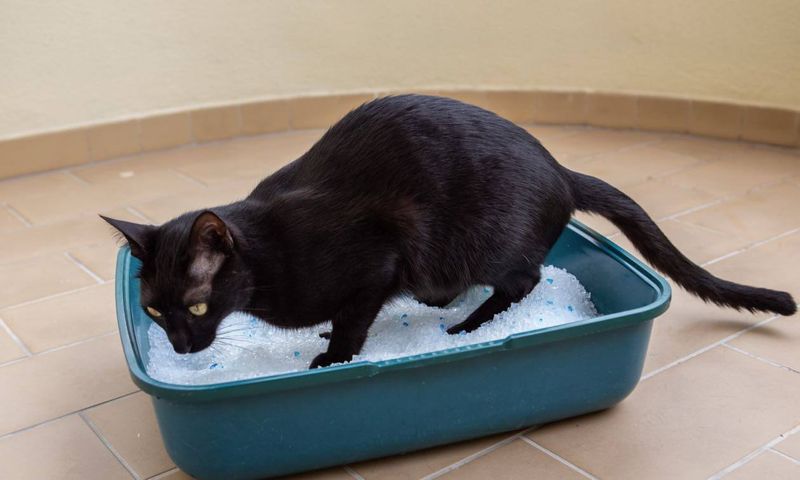
Diarrhea is a common stomach-related symptom in cats that often signals digestive disturbances. Picture a cat near its litter box, casting a distressed glance back at the mess. This situation can arise from infections, dietary changes, or food intolerances. Ensuring a balanced diet and monitoring for allergens can alleviate the issue. Consulting a vet helps identify the underlying cause, allowing for targeted treatments. With careful management, your cat will regain its vitality, returning to play and mischief with gusto, bringing joy back to your home.
Constipation
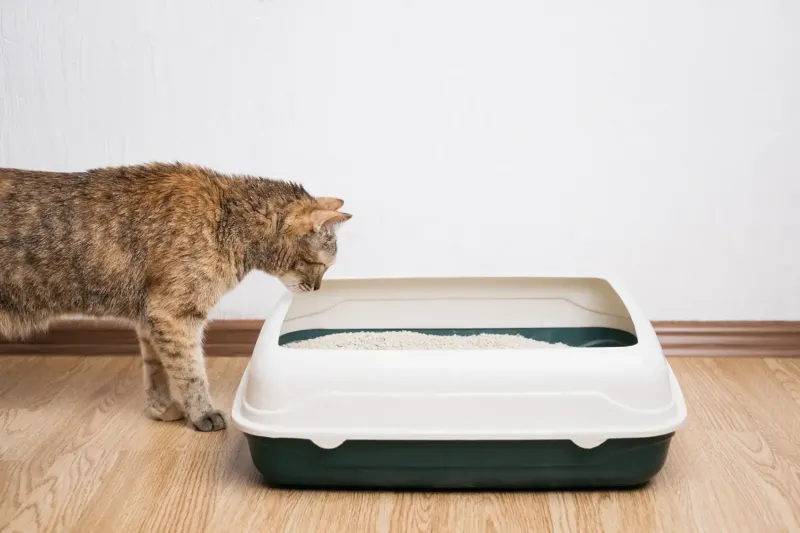
Constipation in cats can be as concerning as it is uncomfortable. Imagine your feline companion perched by the litter box, its face showing signs of strain. This symptom is often related to dehydration, diet, or lack of exercise. Providing ample water and fiber-rich foods can ease the condition. In persistent cases, a vet’s intervention might be necessary. Once resolved, your cat will enjoy its daily routines without the hindrance of digestive woes, a relief for both pet and owner.
Loss of Appetite

Loss of appetite is a telltale sign of stomach-related problems in cats. Picture a normally voracious eater ignoring its favorite meal, resting beside a full bowl. This scenario often hints at nausea, dental issues, or infections. Prompt attention to dietary habits and health status is crucial. A vet consultation can help pinpoint the exact cause, guiding treatment to restore your cat’s appetite. Watching your feline friend eagerly return to its food is heartening, signaling restored health and happiness.
Weight Loss
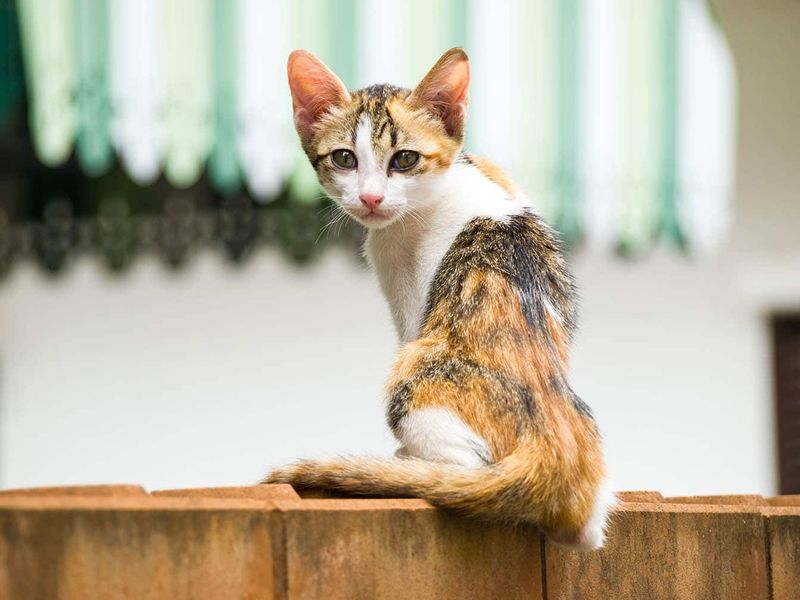
Unexplained weight loss in cats is often linked to gastrointestinal troubles. Imagine a cat lounging on a sunny windowsill, noticeably thinner with its ribs subtly showing. Such weight changes can result from malabsorption, parasites, or chronic illnesses. A thorough vet examination is essential to uncover the cause and implement a treatment plan. Nutritional support and regular monitoring can restore your cat’s vitality, ensuring it thrives with boundless energy once more.
Bloating
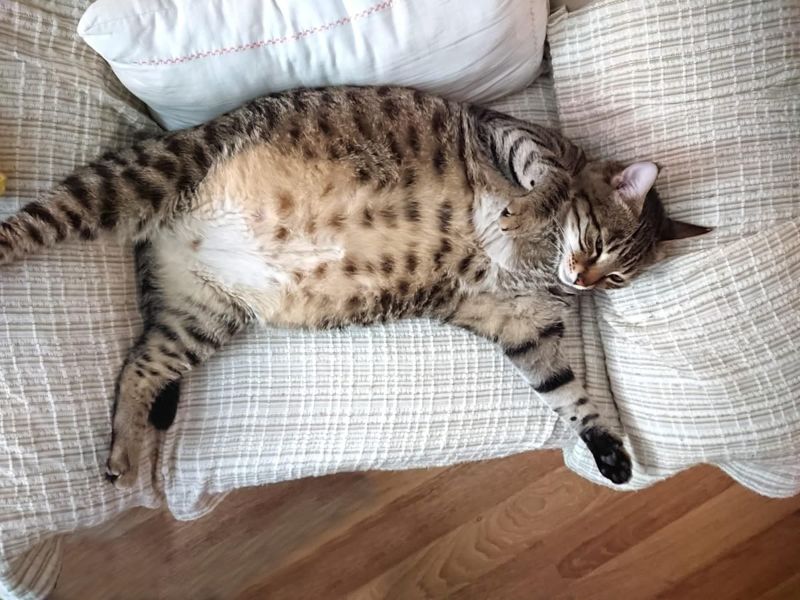
Bloating in cats is a clear signal of stomach distress. Picture a cat sprawled on its back on a couch, its belly unusually distended. This condition can arise from overeating, gas accumulation, or more severe gastrointestinal issues. Immediate veterinary care is often necessary to address the underlying problem. With proper diagnosis and treatment, your feline friend will soon curl up comfortably, free from discomfort and able to enjoy its favorite resting spots again.
Excessive Gas
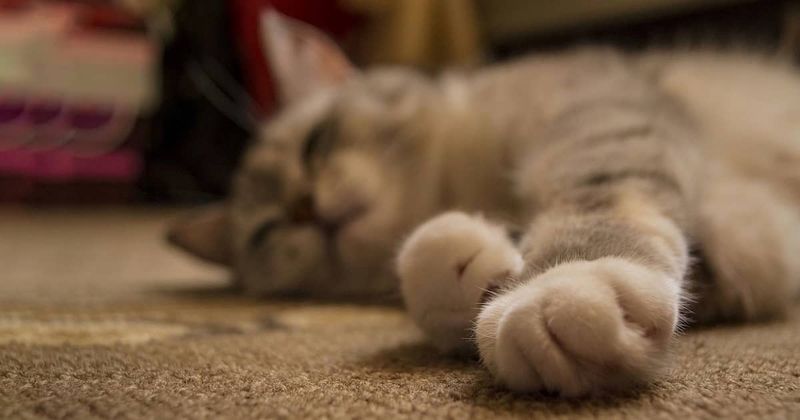
Excessive gas in cats can be both a humorous and concerning symptom of digestive problems. Picture your feline friend sitting on a carpet, looking slightly embarrassed as a puff of gas escapes. This can result from dietary changes, allergies, or intolerances. Adjusting the diet and consulting with a vet can help alleviate this issue. Soon, your cat will be back to its dignified self, minus the occasional, unexpected outburst, maintaining the serene and royal demeanor it’s known for.
Stomach Noises
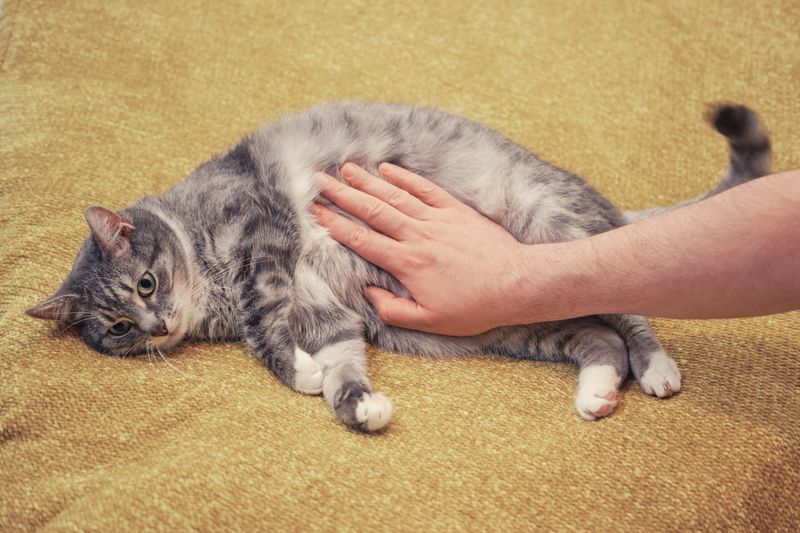
Stomach noises in cats, while often amusing, usually indicate digestive upset. Imagine a cat curled up on a bed, its stomach emitting gurgling sounds, causing it to glance around in mild confusion. These noises can result from dietary changes or mild gastrointestinal issues. Monitoring diet and ensuring consistent feeding times often help reduce these symptoms. With a contented purr, your cat will soon be back to enjoying peaceful naps, without the symphony of stomach sounds.
Abdominal Pain
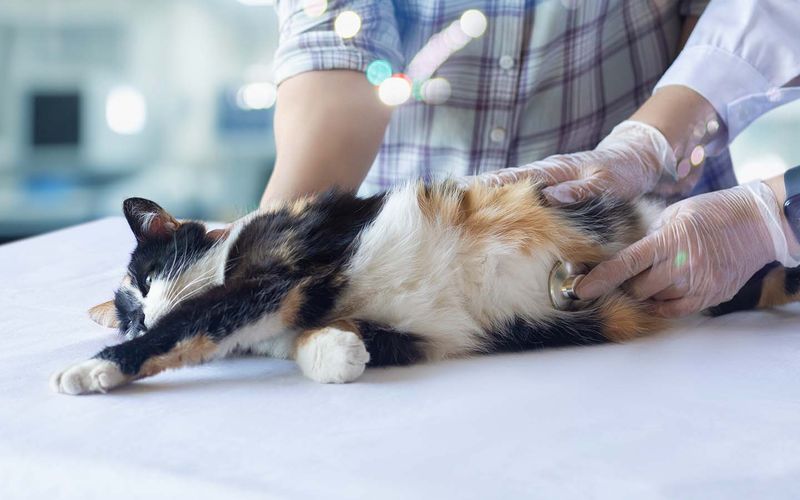
Abdominal pain in cats is a serious symptom that often points to underlying stomach issues. Picture a cat lying defensively on a vet’s exam table, its face showing discomfort. This pain can stem from injuries, blockages, or infections. Immediate veterinary assessment is crucial to diagnose and address the root cause. With appropriate treatment, your feline companion will soon find relief, returning to its playful antics and comforting presence.
Nausea
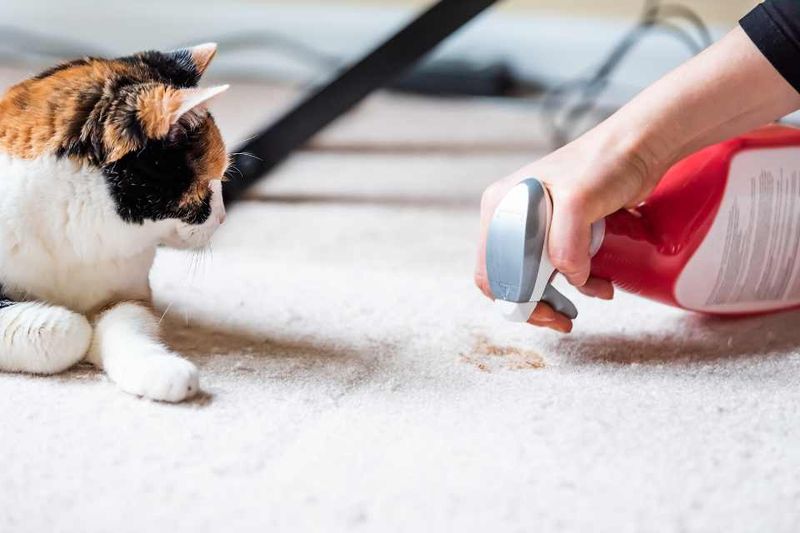
Nausea in cats is unmistakable and often linked to digestive distress. Imagine a cat drooling slightly as it sits on a kitchen rug, retching occasionally. This symptom can result from ingestion of toxins, food intolerances, or infections. Attentive care and dietary adjustments are key to alleviating these discomforts. Consult a vet to identify the cause and provide effective treatment. Soon, your cat will be frolicking around, the picture of health and vitality, once nausea is under control.
Regurgitation
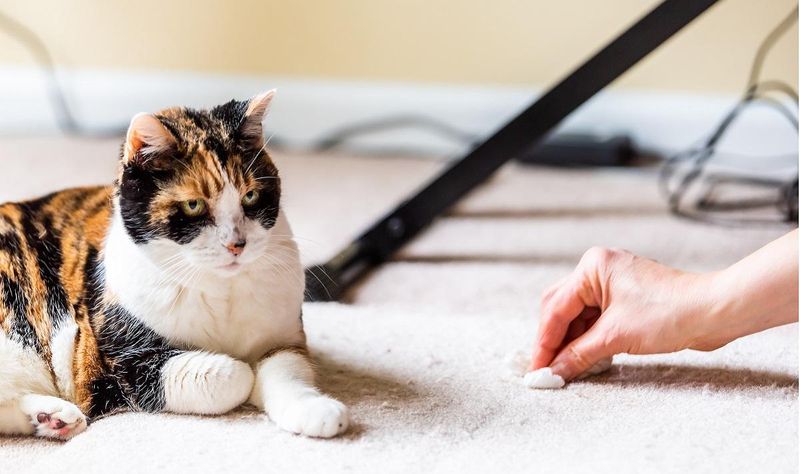
Regurgitation can be a concerning symptom of stomach-related issues in cats. Imagine your furry companion suddenly regurgitating its meal on the carpet, looking momentarily surprised. This can be caused by eating too quickly or underlying esophageal conditions. Slowing down feeding and providing smaller, more frequent meals can help mitigate this issue. A vet’s guidance will ensure your cat’s digestive health is well-managed, and soon, it will resume its graceful demeanor, free from such interruptions.
Drooling
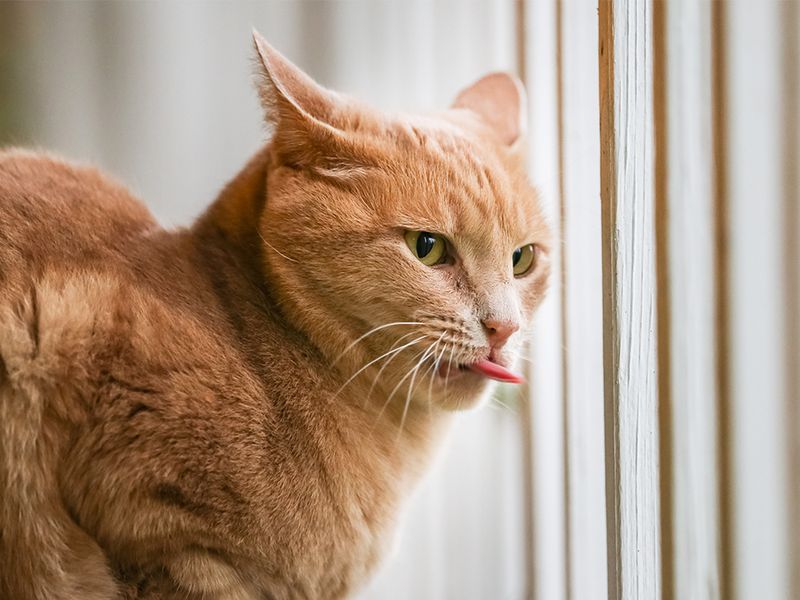
Drooling in cats, especially when excessive, is often linked to stomach or dental issues. Picture a cat on a windowsill, mesmerized by a bird, with drool pooling at its paws. This unusual sight might indicate nausea or mouth pain. A check-up with the vet can determine the cause, whether it’s related to teeth, gums, or digestive health. With the right treatment, your cat will stop drooling, retaining its pristine appearance as it surveys its kingdom.
Excessive Thirst
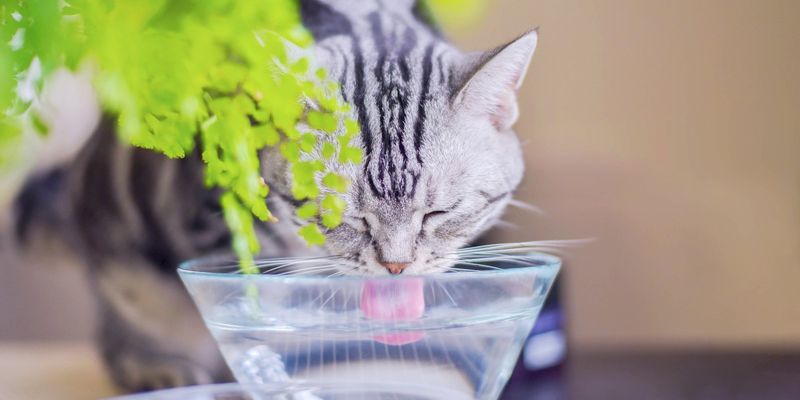
While excessive thirst can be linked to various health issues, in the context of digestive problems, it often suggests dehydration. Envision a cat lapping water with urgency from a glass bowl, sunlight filtering through a kitchen window. This behavior warrants attention, as it may indicate a compensatory mechanism for digestive disturbances. Ensuring balanced hydration and consulting a vet will help address the root cause. Once stabilized, your cat will sip leisurely, enjoying its hydration without haste.
Increased Urination
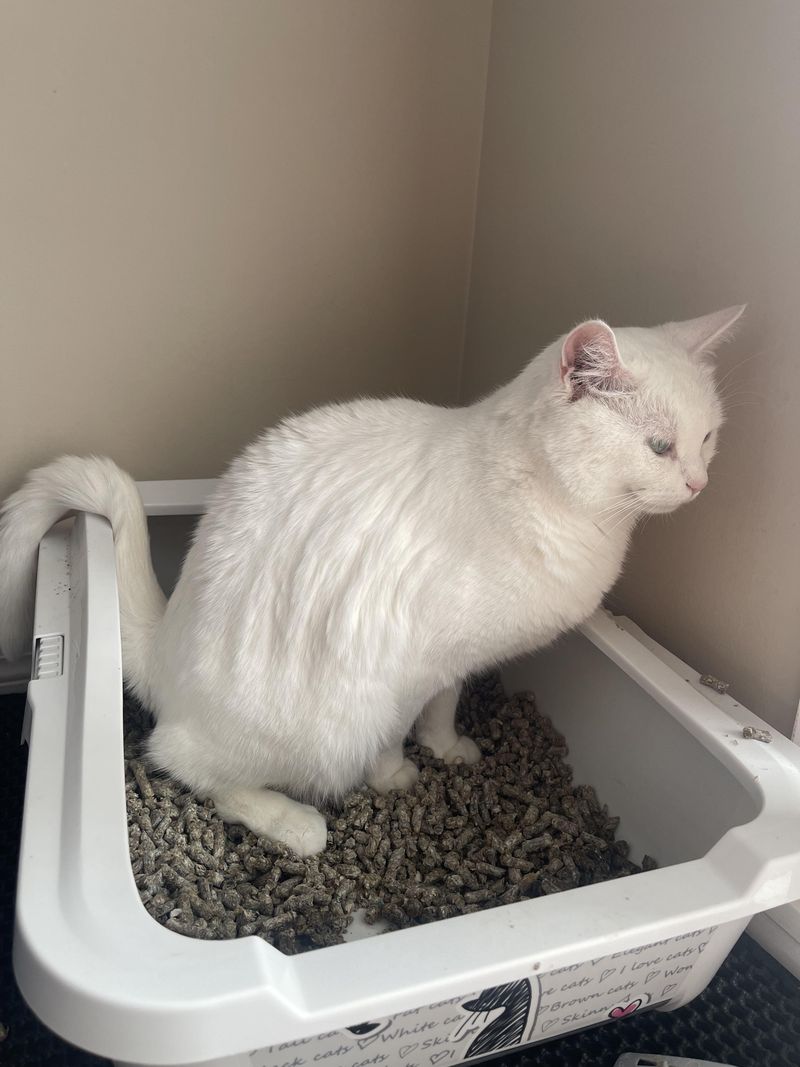
Increased urination, while potentially linked to kidney issues, can also indicate stomach-related dehydration in cats. Picture a cat frequently returning to its litter box, tilting its head inquisitively with a touch of concern. This symptom asks for a closer look at dietary and hydration habits to ensure overall health. Consulting a vet will clarify the cause, allowing for appropriate interventions. Soon, your feline will return to its regular bathroom routine, with its health intact.
Flatulence
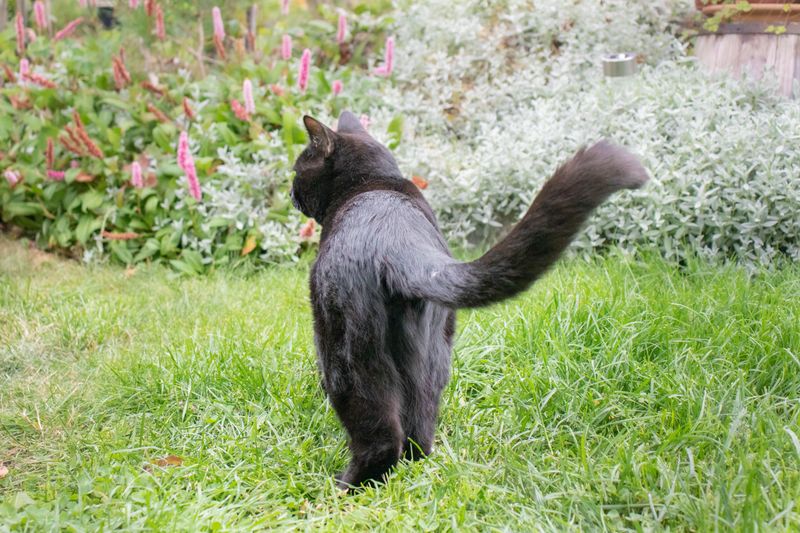
Flatulence in cats, though sometimes amusing, often points to diet-related digestive issues. Imagine a cat sitting beside a pillow, a quirky expression on its face as a small puff of gas escapes. This can stem from indigestible foods or sudden diet changes. Carefully monitoring and adjusting the diet can alleviate this. With time, your cat will enjoy a quieter existence, free from unexpected gaseous interruptions, maintaining its dignity and charm.

